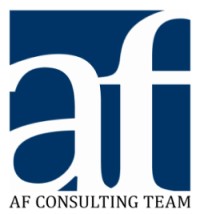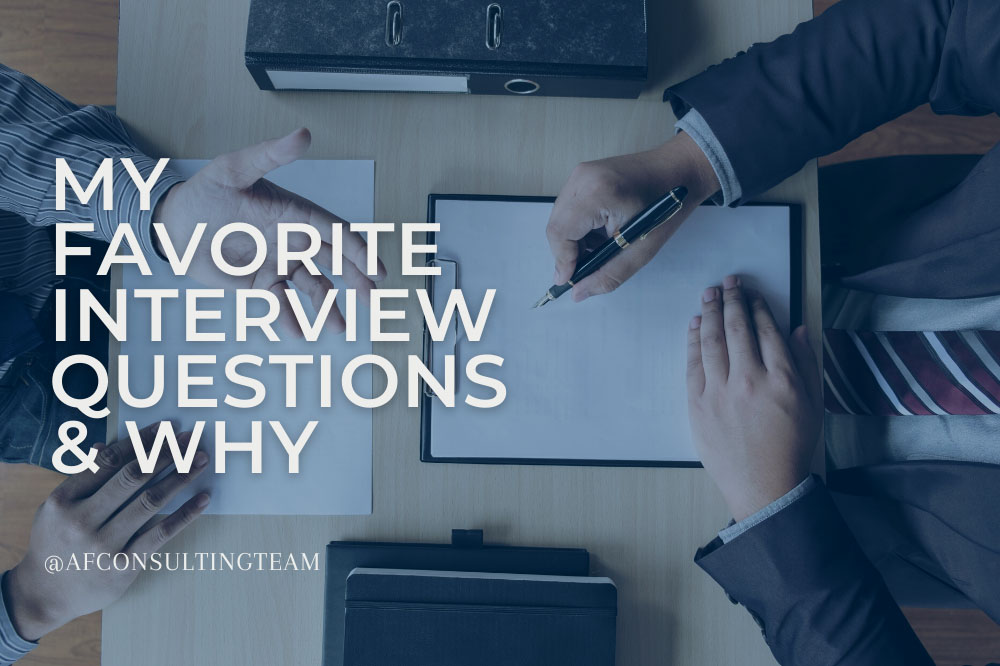I will be the first to admit that hiring isn’t always about the answers to interview questions. Often, I rely heavily on first and overall impressions rather than the exact answers I’m searching for from an applicant.
That being said, I still want to conduct all interviews in a similar fashion–consider it establishing a baseline of comparison—and I still focus primarily on the same set of questions:
- Tell me about a project or task you really enjoyed at a previous job? What distinguishes that particular project in your mind?
Not only will this question tell me about what a potential employee or contractor enjoys, but it will shed some light on what they see as valuable and how they see their own performance. It also gives me some insight into the types of projects they were responsible for at their previous employment.
- Tell me about a positive review you received from a client, customer, or co-worker.
It’s always a good idea to start an interview with questions that lift up the candidate. I want them to get comfortable, get confident, and get real…real quick, so questions that talk about what they like, how they excel, and what they find important will really set the tone for an open and honest conversation.
- How do you handle difficult co-workers? Can you tell me about a time you disagreed with a colleague or manager? Did you speak to them first or approach a(nother) manager? What was the result?
Ok, enough softball questions. Time to get down to how a potential employee handles difficult situations and conversations. It’s easy to ask how they might handle an irate customer, but how someone handles an equal or even a superior can be even more telling.
- A co-worker has made an error in a presentation or project. What, if anything, would you say or do?
How do you handle this type of difficult conversation? It’s not as confrontational as the previous question implies, but it can bring up some very important communication patterns.
- What has been the most challenging professional decision you have made?
Did they quit their job to travel the world? Did they switch to at-home work against their will in 2020? Did they make a complete career shift? There are many factors that go into this question, but what I love about it is that it gives the candidate an opportunity to discuss professional struggles openly, and maybe fill in some resume gaps in a more organic way.
- If you are presented with a new and unknown situation, what processes or conversations do you go through to answer questions and get clarity?
This is a big one for me! If I could, I would word this question, “Can you handle your own shit, or are you going to come crying to me every five minutes?” Obviously, I can’t phrase it that way, as much as I might like, but that’s basically what I am asking. Can you figure things out on your own? Do you know where to get answers or how to seek out resources to help you? How self-sufficient are you? How communicative or straight-forward are you? That may not be important to you, but for me, it’s vital!
- When working on multiple projects, you accidentally send the wrong proposal to the wrong client. Now what? How do you handle it?
Let’s see how well a candidate admits to making mistakes. Eventually, something is bound to happen. What’s important is how an employee handles the situation. Are they emotionally intelligent enough to admit their faults and learn from them? Or are they more likely to play the victim or find the first scapegoat they can? It might not always be evident after hearing the answer to this question, but it’s a start.
- What do you see yourself bringing to the company table? How can you help us reach our goals?
It’s ok to ask some more selfish questions! After all, YOU are hiring THEM! Did this person do any research on the position? Do they know the company? How will they improve the culture, the working environment, the bottom line? It’s another way of asking, “Why should I hire you?”
—-
Of course, there are dozens more questions I might ask in an interview—from obvious things like availability and desired salary to more open-ended questions about their concerns with the position or training—but above all, I want to make sure I ask a few of the above inquiries to flesh out how they handle their work environment, where they shine, and where they might need help.
There is no such thing as a perfect employee, but you want to come as close as possible…if possible.
What are your favorite (or least favorite) interview questions?

